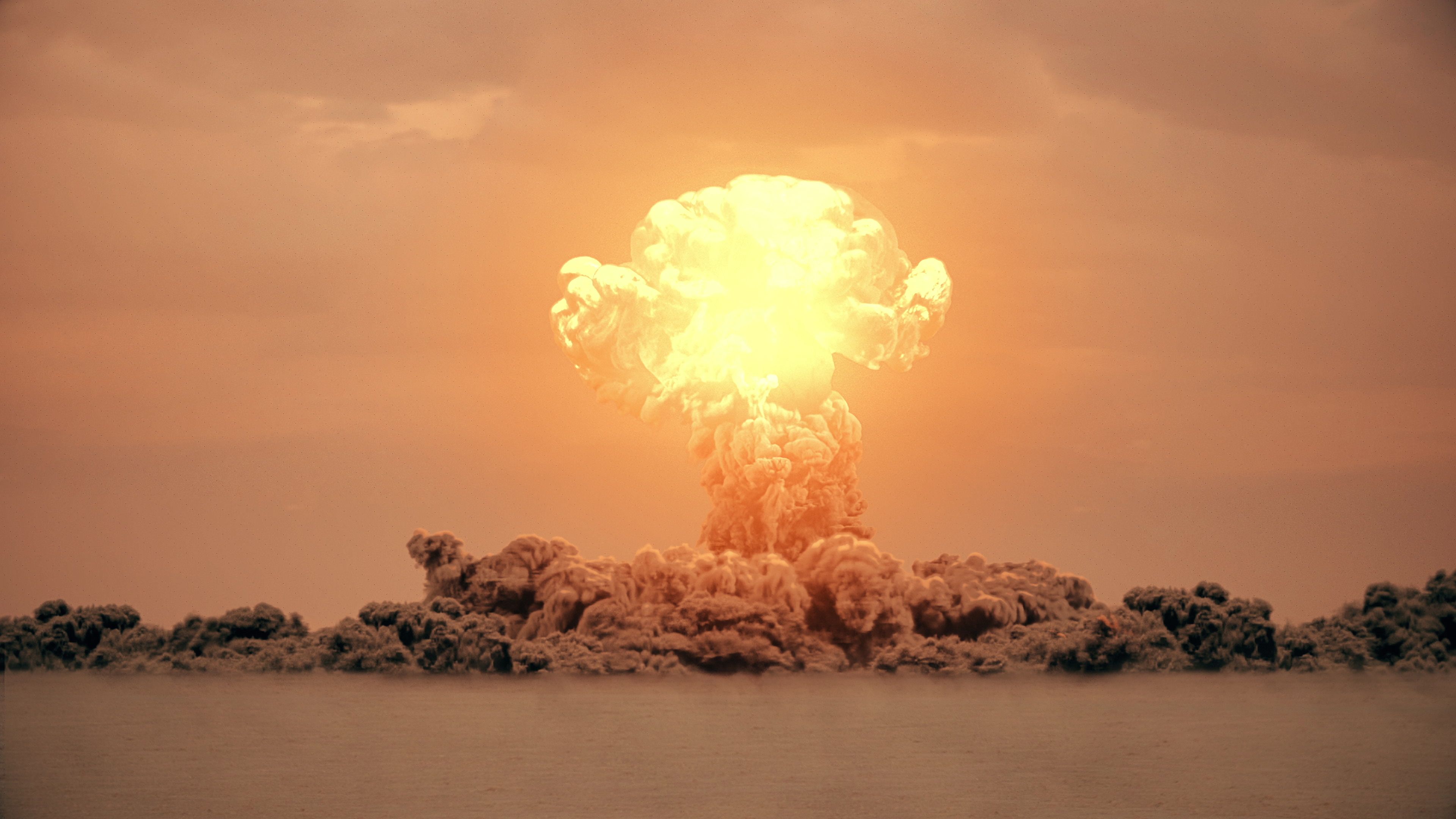Ukraine and Our Nuclear Future
In the decades since the end of the Cold War, regional nuclear powers are adopting strategic doctrines that revolve around the first use of nuclear weapons. This should be particularly worrying for Middle Easterners contemplating their own nuclear future.

The latest developments in Ukraine are both encouraging and worrisome. On the one hand, the Ukrainians’ impressive battlefield achievements inspire hope that they may eventually succeed in repelling Putin’s invading armies. On the other hand, the possibility of Russian defeat brings the world closer to the first combat use of nuclear weapons since the end of World War II. Indeed, though not a single nuclear warhead has been detonated thus far, the nuclear threat has hovered over the war from the outset, affecting decision-making on all sides. In the present context, Russia’s nuclear arsenal has had two important effects: First, it has allowed Russia to deter the NATO alliance, led by the United States, from direct intervention on behalf of Ukraine, a development that would erase Moscow’s power advantage. Second, nuclear threats have enabled Russia to limit Ukraine’s counteroffensive—and the quantity and quality of Western arms that make it possible—for fear of a nuclear response.
This second effect should be particularly worrisome for Middle Easterners contemplating their own nuclear future. Why is this so? After all, many of those who have grown up in the shadow of the Cold War tend to think of the bomb as a defensive deterrent whose use in war is all but inconceivable. “Don’t strike me lest I strike back at you” is the simple equation that sums up this approach. Despite the terrifying paradox at its core, there was something reassuring about the threat of “Mutually Assured Destruction” during the Cold War. Since no sane leader would risk launching a nuclear attack, knowing that the counterattack would bury him under the rubble of his own regime, the possibility of nuclear war seemed very remote. Yet, notwithstanding the theory, in practice both superpowers saw the bomb, in the last resort, as an offensive weapon, and designed their war plans around preemptive nuclear strikes or, at minimum, launch of nuclear weapons upon detection of an inbound enemy strike. In the end, no one really wanted to wait for the enemy to strike first.
Worryingly, in the decades since the end of the Cold War, regional nuclear powers are following suit, adopting strategic doctrines that revolve around the first use of nuclear weapons. Some newcomers to the nuclear club are basically saying: We are not prepared to wait out a nuclear attack by the enemy, In certain situations—including a conventional war that we are on the verge of losing—we will initiate the use of nukes in order to turn the tide of war and stave off defeat. Prominent in this context are Pakistan and North Korea, both of which openly declare their intention to initiate nuclear strikes against an enemy (South Korea and the United States, in the case of North Korea, and India, in the case of Pakistan) that poses a serious threat to the regime or the integrity of the homeland.
Russia is now taking this a step further, innovating a new concept of nuclear aggression. What is Putin actually saying? Don't try us. Not only are we prepared to use the bomb preemptively in order to protect the integrity of our homeland, my regime and its strategic assets. We may also use it to consolidate our hold on occupied territories seized in a campaign of aggression. True, the threat likely is not to drop a city-busting hydrogen bomb on Kyiv, but rather to explode a smaller, “tactical” nuclear bomb on the battlefield. But the explosive power of such bombs is still measured in thousands of tons of TNT, and its very use would signify the crossing a hugely significant threshold, with the potential for further nuclear escalation or surrender to nuclear blackmail. In the face of this threat, President Zelenskyy must now decide how far he is willing to go in liberating occupied Ukrainian land. President Biden, meanwhile, must decide how he would respond to the first use of atomic weapons since Hiroshima and Nagasaki—and how he might deter it in the first place. Neither leader should be envied.
One can hope that President Putin will not follow through on his threats, and that if he does, the U.S. response will be such that no future dictator will dare cross this red line again. Otherwise, it would be a powerful incentive for other countries, including Iran, to acquire nuclear weapons not only as a defensive deterrent but as a shield behind which to pursue regional aggression.
This article was originally published in Hebrew in Israel Hayom.
